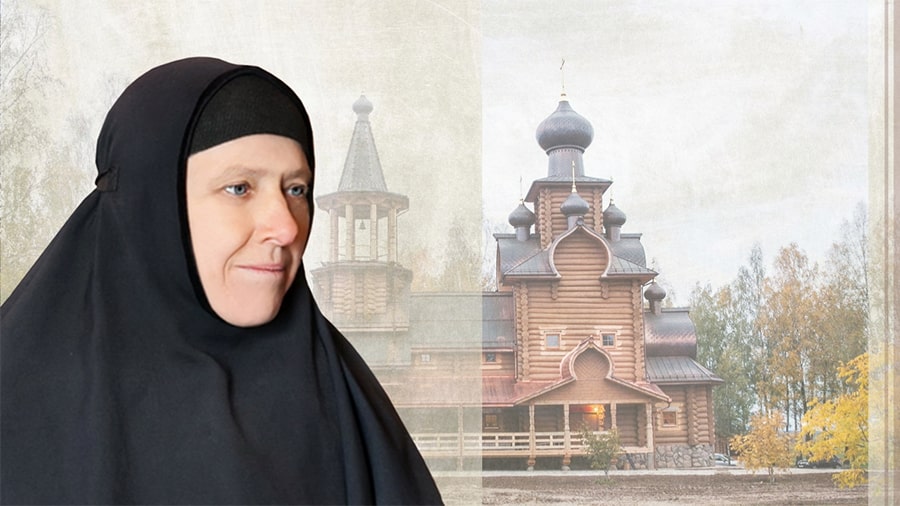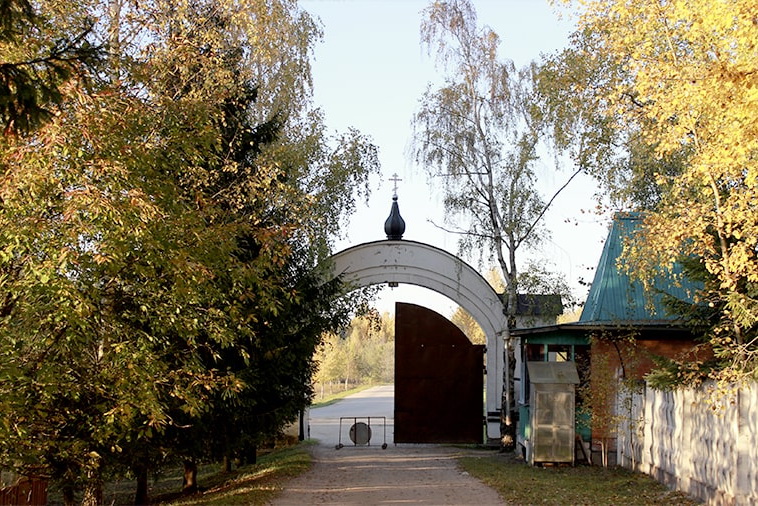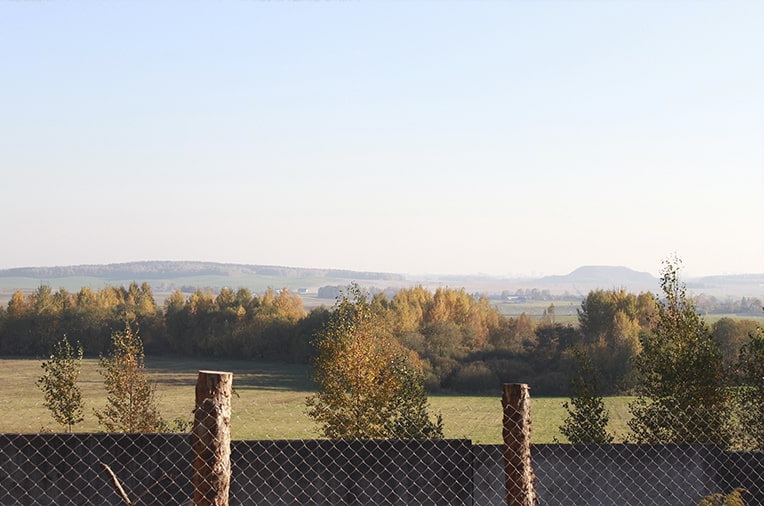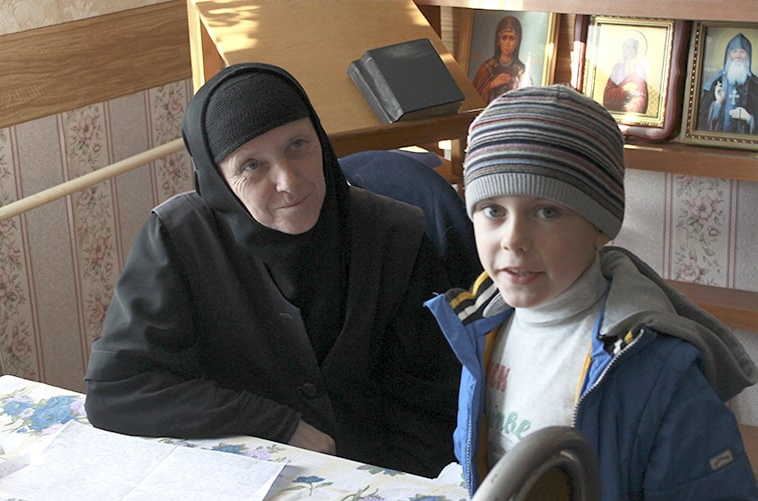
She [the woman] is, in fact, a person of strong will and determination. If she stands on the side of evil, then she will do many evil deeds; but if she commits herself to virtue, then she will rather give her life than step away from her intent.”
(Saint John Chrysostom)
How often do we not appreciate the simple joys that make our lives happy and complete? Like waking up every morning in our own bedroom? Or drinking our favourite blend of tea with the biscuits and candy that we like and can always afford to buy? Or being able to embrace our children and to call our husbands when we want? Having a sober mind, breathing fresh air, and enjoying the beautiful scenery as we drive our own car?
The women who live at St. Elisabeth Convent’s farmstead have none of these. Some have no place to live; others have one or more criminal convictions. They know what it is to be abandoned and/or betrayed by their loved ones, and are still struggling to come to terms with this. Many have had their children taken away from them and placed in orphanages. Signs of alcohol dependency are visible on the faces of many women. Some have mental disorders. Everyone here has a different story, which they will not share easily with an outsider, or even with a newcomer, but all speak with adoration about Nun Barbara (Atrasevich) who keeps this place running.

At the old gate to the farmstead, we are greeted with the sign that says “No entry without the permission of the chief priest.” Entering this gate is much like crossing a borderline. To the women to whom life is about having fun, drinking and indulging themselves in every sort of passion, it is the end of life. For those who have had enough, and want to find some peace and quiet for their souls and nourishment for their bodies, life is just beginning.
It is a life of work and prayer. It is a journey towards becoming a new person, which is slow and difficult, and fraught with many stumbles and falls along the way. Taking it will mean a break from the burden of sin and passion that had built up over the years.
Ever since the establishment by St. Elisabeth Convent of the farmstead for disadvantaged women in 2011, some 300 women in total have received support and guidance here. With the blessing of the Convent’s spiritual father Andrey Lemeshonok, Nun Barbara has been in charge of the farmstead all this time. We asked her to recall the farmstead’s initial years and the first challenges that had to be addressed.
“The first thing we had to do was to uproot the harmful habits,” remembers Nun Barbara. “At first, we used persuasion to get the women to give up smoking. Then Father Andrey came to celebrate the first liturgy and announced at the end of it: “I give you a week to prepare yourselves. No alcohol will be tolerated at the farmstead after that. Absolutely none.’”
Smoking is still allowed, but only outside the gate. Many women are still unprepared to stop smoking. They joke that they will have no sins to confess if they quit.

“Some of the women here are as old as eighty, and many will have been smoking since early adulthood,” adds Nun Barbara. They just find it too hard. Every newcomer to this place who smokes adds to the temptation. One of the women tried to quit smoking multiple times over a year and a half. Finally, she made up her mind to give it up once and for all. This really changed her attitudes and mindset. But she still has sins to confess to,” says Nun Barbara, smiling.
In the beginning, there were just four women living at the farmstead. At times, there were as many as 40, and now there are around 30, which is about the right number. Nun Barbara, who has been here since the beginning, has been keeping the place running, and giving her love to its dwellers whom she calls ‘sisters’ by providing encouragement, inspiration, persuasion and advice.

"When the number of women was still very small, I made a point of speaking individually to each,” says nun Barbara. “I came in the evening and persuaded them to keep silent and focus on their work. ‘You will not help one another by talking. You will only hurt by criticising,” explained Nun Barbara to the women.
After many years of living side by side with disadvantaged and vulnerable women, Nun Barbara notes that many of these women have great difficulty acknowledging their infirmity or dependency. True repentance should come from the heart. But keeping one’s mind focused on work lowers the risk of going back to the old ways. The more the women care for others, the less room is left for sinful thoughts.
Breaking the bad habits of the spirit is an even bigger challenge. Believing that no-one can be trusted, and that going it alone is the only way, the women can find it extremely hard to work together as one team. Changing this mindset is a lot harder than giving up smoking. Nun Barbara calls this the habit of selfishness. Breaking this habit is a lot easier for women who have learned to view the farmstead as their home. The women are paid a modest salary for their work, and some will share it with the farmstead or use it to buy treats for all the sisters.
The history of the farmstead has many successful examples of women who are now happily married, are working and have reunited with their children.
A boy named Misha used to live here for several years. He arrived here with his mother soon after his birth. Nun Barbara was named the guardian of this child, as his mother was suffering from a mental condition.
“Everyone was so fond of him,” remembers nun Barbara. “He loved to play and talk, and a sister who was upset would soon feel better just by spending time with him.”
Misha is now seven and a half years old. He is living with his father and misses the farmstead a lot. He comes from time to time and spends his school holidays here.

Today, there are three children living at the farmstead with their mothers, and they are a source of joy to all the women. One of the women here had had a very painful divorce and took up drinking. Two of her older children were taken away from her, and she remained with a little baby on her hands. Both were welcomed at the farmstead. The little girl is approaching her third birthday, her mother has fit in here, and is willing to reunite with her older children. Another woman was left with no place to live after her husband had abandoned her. She had to move out from her council flat and went to live at the Convent’s farmstead together with her four-year-old child. They have been living here since spring. As they adjust to their new life, the women are recovering little by little from the shock and desperation of being homeless.
A wooden church in honour of Saint Sergius of Radonezh stands in the middle of the farmstead. It was built on the foundation of an old church that had burned down and is now almost complete. Liturgies are celebrated every Tuesday. In summer 2018 the first wedding ceremony took place at the church. A couple from a nearby village chose to celebrate their union here.
Life at the farmstead follows its course. The day starts with a prayer. After breakfast, everyone goes to work. Some work at the farm looking after the turkeys, chickens and pigs. Others make garments out of the leftover pieces of fabric from the sewing workshop. One recent example of an innovative product is the new packaging for ceramic items made out of fabric. The farmstead is also home to the Convent’s herbal workshop. Some of the most delicious pies, with cabbage, mashed potatoes and apricot jam, come from the farmstead’s bakery and are sold at the stand outside the farmstead. Nun Maria (Kovalchuk) who is living at the farmstead keeps the recipes for many of these delicacies. The farmstead is also known for its sauerkraut and smoked fish. The branches of the pussy willow, the symbol of the Palm Sunday feast, are also procured and stored at the farmstead. The storage place was converted from an old bomb shelter, which had previously been used for growing shiitake mushrooms.

As winters are a lot less busy than the summers, Nun Barbara has long been trying to find a useful occupation for the women in the winter. An avid carol-singer, she remembered her experience of carol-singing in Poland and brought together a group of women to go around singing Christian carols during the Christmas time period. Every January, the farmstead sisters travel to the nearby villages to sing Christmas carols to their residents. The locals enjoy the singing very much and reward the women generously with candy and many other different treats.
The news about the farmstead is spread by word of mouth by everyone who has visited it. Nun Barbara is receiving a lot of calls and letters from troubled women. She writes back, offering words of encouragement, guidance and spiritual advice. She is also trusted to be the first point of contact for the incoming women. After meeting Nun Barbara, every newcomer will have an interview with Father Andrey.
“We are often approached by the infirm, but we have no resources to look after them,” explains Nun Barbara. “We only accept the women who are willing to work and agree to live by our rules. Anyone who is more interested in alcohol, smoking and making trouble is asked to go look for an abode elsewhere.
We would like very much to set up an almshouse here so that we do not have to send away the elderly and the sick, and so we could offer more choices of work for the women here. We would also like to establish a children’s village to accommodate more mothers with children who have no income or place to live.”
Another strong wish of Nun Barbara is to build houses next to the farmstead for its residents to enable women to establish themselves in the neighbourhood.
As I reflect on the lives of the women at the farmstead, I appreciate how incredibly difficult it must be for them to overcome the legacy of their past and how much hard work it must take for them to rebuild their lives. We asked Nun Barbara how difficult it was for her to remain hopeful and optimistic, given this knowledge.
“I accept everything as God’s will,” responds Nun Barbara. "I see whatever happens in their lives as providential. I tell myself not to lose hope, but also not to rejoice too much. I look for the golden middle. I am also mindful that there are a reason and a meaning for any event.

Some find the calm and measured pace of life at the farmstead too hard to put up with and take off in pursuit of ‘freedom’. They sometimes write to me from prison. After doing their time in prison, some will rethink their lives and come back. Anyone who decides to leave is free to go. We leave it to God’s will. We read the Psalter for everyone who does."
The farmstead keeps Nun Barbara busy day and night, but she still has her dreams.
“I dream about having some quiet time to myself and spending it alone in my cell. I even have a chance to do it on a rare winter day. But most of the time, there is simply no chance of taking a break and relaxing with a book after a liturgy. Something happens, and I get a phone call. I realise that I must respond and find some other time for resting.
***
If you want to appreciate how good your life is, or to put your problems into perspective, come to the farmstead, where its thirty dwellers are battling and praying hard to eradicate chaff from their souls.